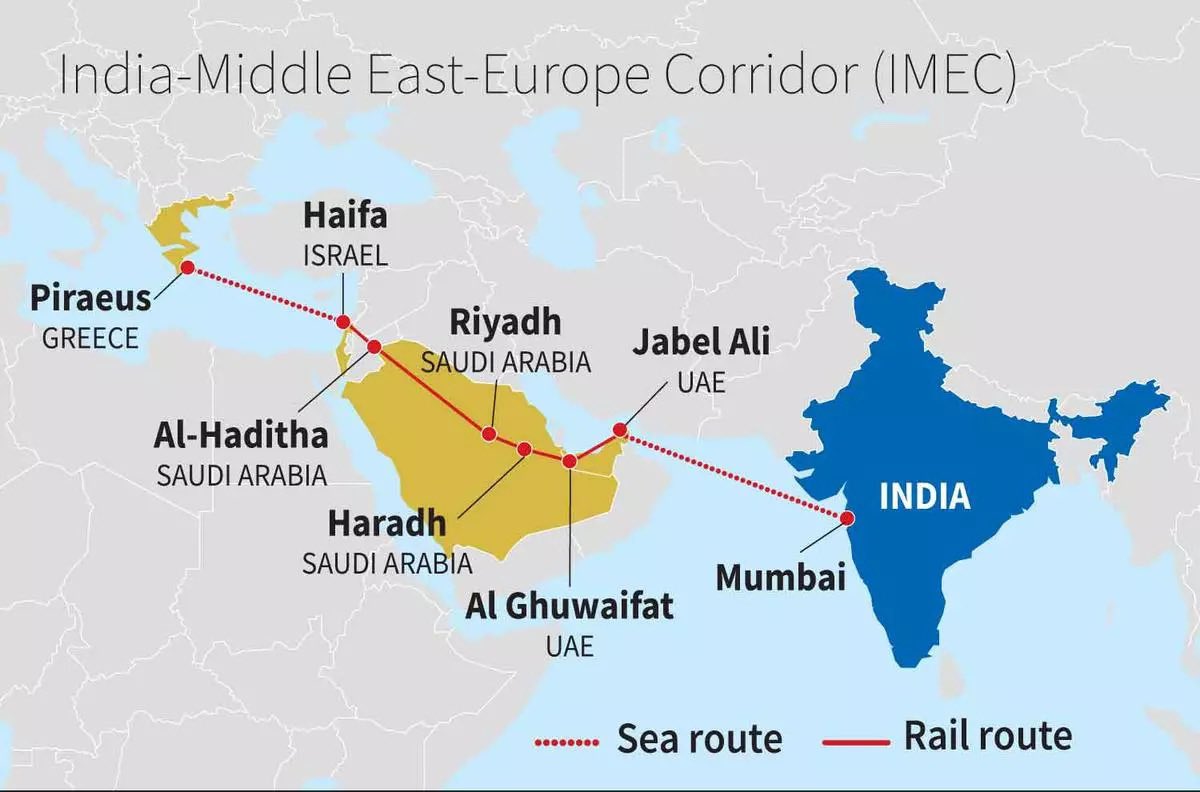The India-Middle East-Europe Economic Corridor (IMEC) hinges crucially on Saudi Arabia and Israel resolving their political differences of 75 years. Though Saudi Arabia and Israel do cooperate on various issues, they have not established diplomatic relations. But they are less prickly than before. Earlier this month for the first time an Israeli delegation of the antiquities authority attended a meeting of the United Nations Educational, Scientific and Cultural Organisation (UNESCO) in Saudi Arabia and sat at a table with the name plate of Israel.
Saudi Arabia did not sign the 2020 Abraham Accords that normalised relations between Israel, the UAE and Bahrain. It is also not part of I2U2, a group comprising India, Israel, the UAE and the US, formed in 2021 for deeper engagement in six areas including transportation and energy. The US is trying to bring Saudi Arabia and Israel closer, but success will depend on the Saudis being reassured on security and being allowed to enrich uranium for production of nuclear power, which the US is wary of for fear of the enriched isotopes being diverted for nuclear weapons. Israel will also not want a country possessing nuclear weapons in its backyard, when it is straining to prevent Iran from acquiring them.
And the Saudis will not relent unless they also wrest meaningful concessions for the Palestinians from Israel. Though Israeli Prime Minister Benjamin Netanyahu has hailed the corridor as good for the country and transformative for the region, he is heading a hard right coalition that has as its goal annexation of the West Bank and denial of Palestinian autonomy.


























